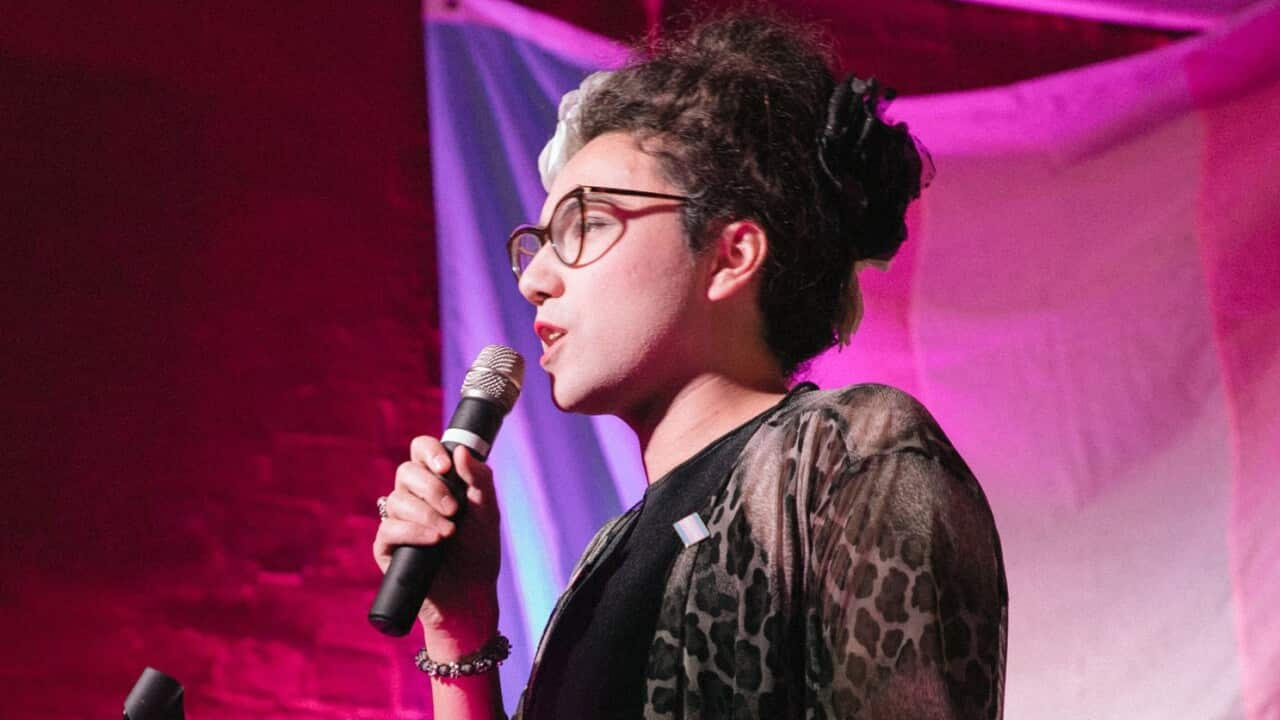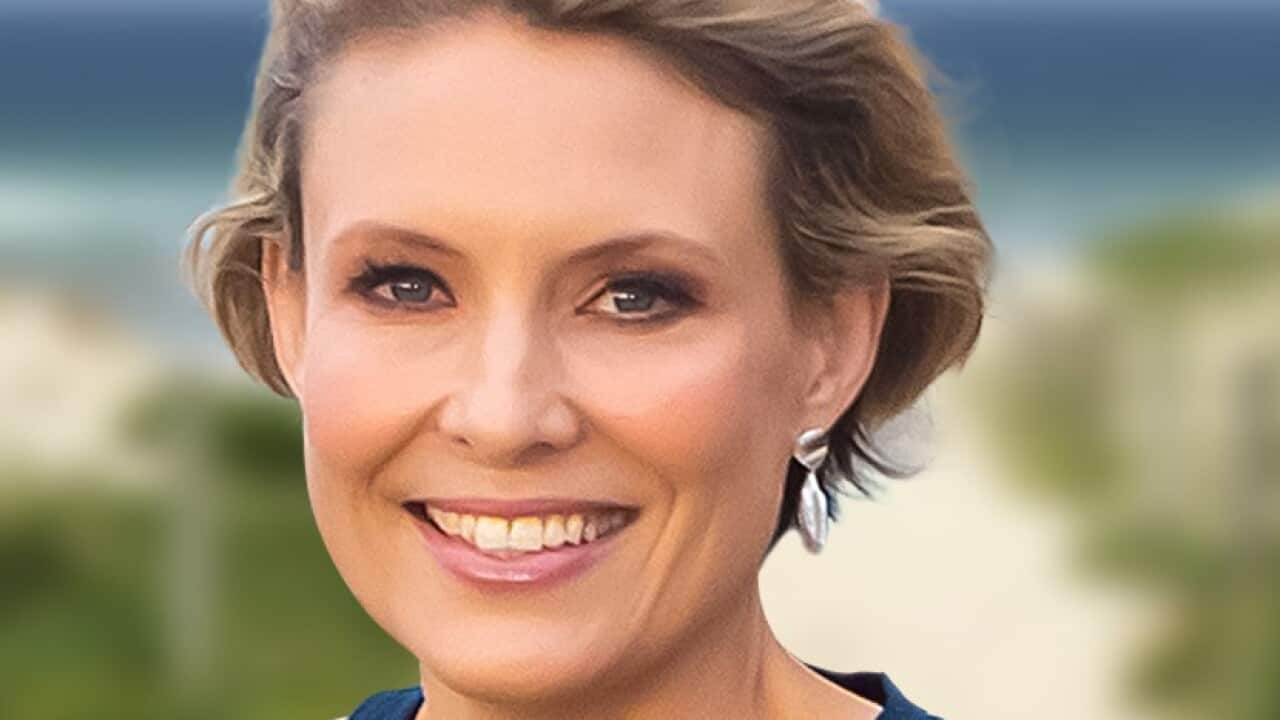Women’s sport is under threat and needs to be protected, according to dual Olympian and Commonwealth Games gold medallist, Jane Flemming.
Speaking to Insight’s Kumi Taguchi, Flemming said women have “fought for so long to have that fair platform to compete”, and she now fears “the integrity of women's sport is under question” due to the inclusion of transgender athletes.
It’s a hot-button issue, not just in Australia but across the world, with athletes, transgender groups, politicians, scientists, and the sporting community deeply fractured on how to tackle it.
The pressing question: how to strike the right balance between transgender inclusion, fairness and safety.
“I realise this is a fair versus inclusive argument, but fairness is the basis of sport. Which is why we have all of the categories in strength and age and in biological sex, and it is around creating that fair playing field," Flemming told Insight.

Jane Fleming holding the Commonwealth Games Queen’s Baton in Circular Quay in 2006. Source: AAP / ANDREW CABALLERO-REYNOLDS/AAPIMAGE
“The level playing field is illusory; everybody has advantages, and successful athletes always have advantages over less successful athletes,” Harper, an advisor to the International Olympic Committee, told Insight.
Instead, Harper believes it is possible for transgender and female athletes to have “meaningful competition” if trans women suppress their testosterone levels for at least 12 months – as Harper did when she transitioned in 2004.
“I do think it is absolutely possible … you may not have 100 per cent of inclusion, fairness and safety, but you have a very high percentage of all three,” she explained.
For Liberal Tasmanian Senator Claire Chandler, fairness should come before inclusion, and she proposed a private member’s bill in February to ensure it does. The ‘Save Women’s Sports’ bill seeks to exclude trans women from competing in female categories.

Senator Claire Chandler introduced the ‘Save Women’s Sport’ bill in February. Source: AAP / MICK TSIKAS/AAPIMAGE
“I share their views. We will have more to say about that at another time,” he said last Monday.
But only days later, he abandoned his support for the bill, saying: “It is a private member’s bill. The government does not have any plans for that to be a government bill.”
Katherine Deves, Mr Morrison’s pick to contest the seat of Warringah and a supporter of the ‘Save Women’s Sports’ bill, was criticised for public posts she made on Twitter referring to trans teenagers as ‘surgically mutilated’ and ‘sterilised’.
Last week she apologised for the posts.
“My advocacy for the rights and safety of women and girls is well known, and I stand by my desire to ensure we protect the safety of women and girls and our entire community… however the language I used was not acceptable, and for that I apologise”, she said last Wednesday.
However, the debate continues across the world. British Prime Minister Boris Johnson recently said transgender women should not compete in female sporting events.
World Rugby, the international sporting body for rugby union, also placed fairness and safety ahead of inclusion when it banned trans women players.
The AFL cited similar concerns over fairness and safety when it denied transgender player Hannah Mouncey’s participation in the AFLW.
Spokespeople from several of Australia’s sporting codes, including Cricket Australia and Netball Australia, said their organisations support inclusive policies for transgender and gender diverse people, and said they were not consulted on Claire Chandler’s private member’s bill.
Central to the debate about differences in biological and hormonal development, is whether male physical advantages that come from the surge of testosterone during male puberty, can be reversed with hormone therapy.

Caroline Layt transitioned just before her 30th birthday.
Rugby and track and field athlete, Caroline Layt, was assigned male at birth and transitioned just before her 30th birthday. She played sport in men’s teams before transitioning and, nine years later, she began competing as a transgender woman in female categories of the same sports.
Now in her 50s, Layt told Insight that since being on hormone therapy, her testosterone level is much lower, and even lower than that of the average female.
“Once you've been through a medical transition, and for someone who's transitioned like me, your muscle mass decreases, your fat levels go up,” Layt said. “And over time, after 10 or so years of transition … you're virtually probably at a disadvantage”.

Caroline Layt says she was made to feel like a ‘pariah’ by some other players when she first started playing women’s rugby.
“There's very few trans women, there's 1 per cent of us [in the] population and there's so few of us playing sport,” Layt said. “There should be rules and guidelines … but I don't think [the bill is] required because we're not hurting anyone by playing sport.”
Katherine Deves and Senator Claire Chandler were invited to take part in Insight’s Gender Games episode to discuss the ‘Save Women’s Sport’ bill. They both declined to attend the recording of the show on April 4.













